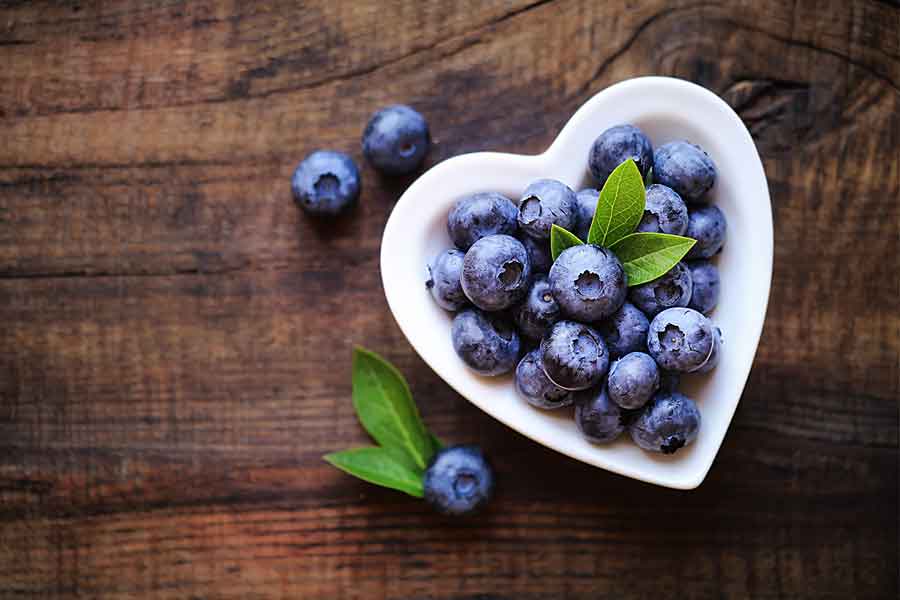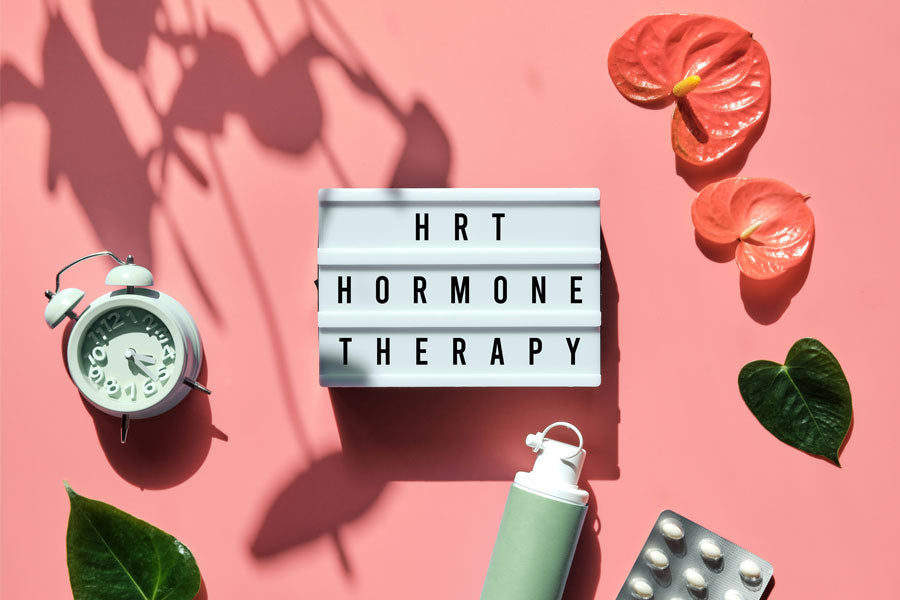Trusted for 25+ Years
Sexual Health & Weight Loss

Dr. Lisa Lawless, CEO of Holistic Wisdom
Clinical Psychotherapist: Relationship & Sexual Health Expert

Excess Weight & Health
We specialize in holistic sexual health, which means we also focus on general health as it is interconnected to sexuality. In fact, sexual issues are often indicators that something more fundamental is needing your attention, and sometimes being overweight may adversely affect your health and sexual health.
We embrace people as they are and as they want to be. We are not advocating that people should not be plus-size, rather we will be exploring a holistic approach to weight loss, starting with the emotional reasons we eat, while also examining the chemical and nutritional imbalances that can cause overeating. Additionally, we will review suggestions on integrating routines to adopt a healthy, emotionally, physically, and nutritionally supportive lifestyle. Please also see our Plus-Size Sex Education, Resources & Products for helpful resources.
Emotional Addictions To Food
An addiction can be defined as an overwhelming craving for a substance or behavior. It is usually most associated with drugs, alcohol, and nicotine. However, many people are addicted to food, work, sex, and other 'non-drug' activities. Holistic therapy embraces the concept that addiction impacts us within our mind, and body, not just physically, as western medicine typically covers.
It is essential to understand that emotional addictions to anything stem from a much deeper cause than just a deep yearning for the substance or activity. The addiction begins with emotional pain or discomfort within us that needs to be comforted, rather than coming to terms with what is truly ailing you.
Sometimes this type of emotional pain is unconscious, and it isn't easy to comprehend what is driving our behaviors. Yet, it is vital to get in touch with our pain to allow it to heal. It does not mean that we have to trace our addiction back to age four when our father yelled at us, or at age seven when a classmate made fun of us. Usually, addiction is not based on one painful event but a string of many that we have experienced. The way we learn to cope with pain is as important, if not more important than the pain itself.
If we grew up believing that we needed to smile when we were sad, or say "I'm great" when we weren't, or deny our pain or sorrow completely, then we were well on our way to a life of being dishonest with ourselves as well as others. When we can be true to our emotions and honor them while allowing them to surface healthily, we further nurture ourselves through healthy coping that enhances our growth.
Explore Emotional Support
Addictions are genuinely overwhelming, and one of the best things that one can do to heal addiction is to seek support. Studies show that the most effective way to overcome addiction is through meaningful connections with others. Making your addiction conscious by acknowledging it and being vulnerable to a compassionate person who can support you during your healing process is a potent tool. Whether you seek holistic counseling or reach out to a friend or local support group; remember you are not alone; many people are going through similar pain and the same addictive behavior.
Often we can feel vulnerable when we begin to lose weight, and it is essential to provide ourselves with emotional nurturing. This is also a good time to journal, seek counseling, keep a dream journal, take up yoga or have massages to get us in touch with our body. Using these and other healthy tools will assist in cleansing not only excess physical weight but emotional weight as well.
Physical Food Addiction
When exploring a food addiction, one thing to keep in mind is understanding that there are a few things that can contribute to food addictions: genetic factors, abuse or trauma, and chemical imbalances. Below are some of the things that can cause chemical imbalances in the body that can lead to overeating.
Food Related Hunger
- Toxic hunger is not real hunger; instead, it is the body withdrawing from unhealthy food, causing withdrawal symptoms such as headaches, shakiness, fatigue, mood swings, and more.
- Chemicals found in some foods called exorphins bind to opioid receptors in the nervous system. This can create an addictive response in those who are already genetically prone to addictive behavior. Foods that are especially high in exorphins are gluten, dairy, coffee, chocolate, and fructose.
Chemical Imbalances In The Brain
- An imbalance of hormones, such as serotonin or leptin, can also cause food cravings.
- One can also become addicted to the endorphins that are released into the body after eating.
- Imbalance in either dopamine or serotonin creates intense cravings.
- Appetite also appears to be very sensitive to the sex hormone estrogen and progesterone, causing food cravings during menstruation.
- Insomnia and poor sleep quality can lead to an imbalance in leptin and ghrelin, which triggers hunger.
- Issues with low levels of gut microbiome can create cravings for sweets and carbs. Studies show that those who have had to take antibiotics can have these issues. The fundamental reason for this is because you may have too much yeast overgrowth in your system. Because sugars feed on yeast, it can create an intense craving for sweets.
- Insulin resistance, often associated with type two diabetes, increases appetite and cravings for carbohydrates and sugars. This is due to intense blood sugar levels and insulin spikes.
Lab Testing For Chemical Imbalances
If you are concerned that you are overeating because of a chemical imbalance, there are labs that you can have done to help you rule things out. Talk to your doctor about the possibility of doing them. Here are some examples:
- Bloodwork for fasting glucose, insulin, HbA1C, and morning cortisol checks for signs of blood sugar imbalance and insulin resistance.
- A comprehensive digestive stool analysis or live blood analysis can determine an imbalance in the gut microbiome or an overabundance of yeast.
- An organic acid test can indicate dopamine and serotonin expression, and if that is being affected by the gut microbiome.
- A sleep study can determine your sleep quality as well as check for apnea or another type of sleep disorder.
ADHD Food Addiction
There are three types of attention deficit hyperactivity disorder (ADHD):
- ADHD: impulsive and hyperactive type
- ADHD: inattentive and distractible type
- ADHD: impulsive and hyperactive combined type
It is not uncommon for those with ADHD to have compulsive and impulsive issues pertaining to food. In fact, the inattentive symptoms of ADHD are directly related to binge/disinhibited eating.
While eating disorders affect about 0.5—3% of the general population, the prevalence of disordered eating in those with ADHD is as high as 12%. In 2007, a study conducted at Harvard Medical found that girls with ADHD were almost four times more likely to have an eating disorder than those without ADHD.
Compulsive eating is much more prevalent among people with ADHD than among overeaters in the general population. Eating disorders such as binge eating disorder (BED) are quite common in those who have ADHD. Some may have anorexia nervosa (AN) or Bulimia nervosa (BN) as well. Unhealthy eating of food often involves cravings and patterns of losing control, followed by regret. There are four main reasons for this:
- People with ADHD are deficient in the pleasurable brain chemical dopamine. Eating carbs triggers a dopamine release in the brain. Processed foods are chemically designed to maximize dopamine stimulation to ensure you keep eating them, making it incredibly difficult for many people to resist, especially in the brain of someone with ADHD. Because food (especially addictive carbs) creates pleasure in the brain, overeating can become a form of self-medication.
- People with ADHD tend to get hyper-focused on work and skip eating when they should. When they are finished with their work, they tend to be excessively hungry and want an enormous, unhealthy volume of food.
- Restlessness and boredom are typically associated with the hyperactivity component of ADHD. Eating can provide stimulation that eases those feelings.
- Impulsivity is a common behavior in those with both ADHD and binge eating disorder. This often translates into eating in excess, eating unhealthy things, and feeling regret later. This behavior often happens automatically outside of awareness.
Helpful Tips For ADHD Weight Management
- Becoming organized about meal planning.
- Don't keep unhealthy foods in the house that may trigger compulsive food choices.
- Keep a eating schedule.
- Pre-plan what to eat to avoid compulsive unhealthy behavior.
- Don't shop when you're hungry and have a shopping list.
- Know your trigger foods and avoid them.
- Get plenty of sleep.
- Eat at consistent times.
- Be kind to yourself by nurturing yourself.
- Divert your focus onto things that provide emotional health release like physical activity (walk, bike ride, etc.).
- Cognitive behavioral therapy (CBT).
- ADHD drugs Vyvanse (Lisdexamfetamine) or Ritalin (Methylphenidate) may also provide relief.
Nutritionally Hungry
One of the most significant nutritional problems with society today is our constant dismissal of science that has confirmed again and again that greens, beans, onions, mushrooms, berries, and seeds (along with nuts) are the most healthy foods for us. Instead, most search for the drop weight fast fad-diet. We focus so much on being thin and counting calories or achieving ketosis that we forget what it means to be genuinely nutritionally healthy.
Most of us tend to fall victim to creative marketing and diets that are hyped up, easy, and the latest thing. It is not that we are lazy or unintelligent; we are just overwhelmed. How can we not be when we are bombarded with so much information?
Core Issues Of Weight Loss
Most Americans are nutritionally starving. We are getting food, just not full of the critical nutritionally rich vitamins and minerals we deserve. This is why we have a vast array of societal health problems. We also need exercise, and with increased sitting using technology, many of us are getting less and less of it.
Despite fad diets telling us to avoid all carbs, we need nutritionally dense carbohydrates to be healthy, but those need to be the right kinds of carbohydrates. Diets like the keto diet are not safe to do long term. They can allow you to drop weight quickly, but many doctors do not recommend them for more than three months as your risk strain on your vital organs, especially your kidneys.
Thin Or Overweight: Are You Nutritionally Starving?
Often our society sees overweight people as more than covered when it comes to nutrition. In actuality, it does not matter if you are lean or overweight, you can be starving for nutrition.
What do nutritionally starved people eat? Bleached flour, sugar, and high-fat foods like bacon, burgers, etc. Now ask yourself, is there any reason to think that our brains aren't going to be screaming for nutrients? Of course, you will get signals that you are hungry even when your stomach is full because you have not fed your body what it needs, and that is why we often overeat. There is a vast difference between being full and having true satiation regarding the nutrients your body needs. No wonder so many of us feel tired, have acid reflux, irritable bowel syndrome, and other health problems.
Toxic hunger, as previously mentioned, is when one experiences withdrawal from unhealthy food. They will experience what is similar to drug withdrawal and experience feeling hangry (hungry-angry), shakiness, stomach pain, headaches, and lightheadedness as their body withdraws and tries to clear the toxins they have been eating.
Upon having these challenging withdrawal symptoms, many people give up their diet of caloric restriction or healthy foods and go back to the unhealthy foods they are addicted to, never realizing they just needed to get through the withdrawal period.
Food is made up of chemicals, and being addicted to unhealthy food is truly no different than a drug addiction. Unhealthy food causes cellular damage and inflammation to our body, yet compels us to keep going back for more. A perfect example is sugar, which lights up the brain in a similar manner to cocaine, so it is no wonder we are addicted to unhealthy food.
The good news is that if you can think of it as a drug detox and get through a couple of weeks of withdrawal symptoms, you won't feel bad anymore. You will also reset your taste palate so that healthy things will taste amazing to you, and you will lose cravings for unhealthy foods.
High Protein Diets
High protein diets, such as the keto diet that uses ketosis, are quite popular and effectively control hunger and get the weight off quickly. Ketosis occurs whenever the body lacks a sufficient supply of carbohydrates, a prime source of energy. During ketosis, carbohydrate-depleted metabolisms turn to other sources, including ketones from stored fat or protein, to satisfy daily energy needs.
If you are doing a ketosis diet, it should be done short term (some doctors indicate less than three months) to avoid kidney damage and other adverse health effects. Ultimately choosing a healthy lifestyle rather than a short-term diet is best.
Intermittent Fasting
Intermittent fasting (intermittent energy restriction) is an excellent way to lose weight as well as keep as a permanent lifestyle. Intermittent fasting can be merely restricting your eating to an 8-hour eating window. Having a long period where you do not eat optimizes your body's ability to repair and heal itself. Also, it improves insulin sensitivity and inflammation and when cells are in a fasting state, they are more resistant to disease and stress, reducing your risk to diseases such as cancer and slowing the aging process.
Intermittent fasting is flexible, and there are many ways to do it so that you can choose a plan that fits into your lifestyle. The best type of fasting for you will be to eat in sync with your circadian rhythm. This means getting most of your calories earlier in the day because insulin sensitivity is highest in the morning. One of the most common ways to do intermittent fasting is to stop eating earlier in the evening to lengthen your overnight fasting period.
Don't Starve Yourself
There are two ways that we typically starve ourselves and sabotage our weight loss goals. One is that we do not consume enough calories. This is important because if you eat too little for your body size, your metabolism will slow down. After all, it will think that you are starving and will want to go into survival mode to conserve all the body fat you have, and that defeats the point.
The other way we make a diet harder is by eating food that is low in nutritional value. Ensure you are getting your vitamins and minerals. Drink water and herbal teas such as green tea, and try not to burn out your nervous system on caffeine.
How to Determine Calories for Weight Loss
Tally one applicable qualifier from each category for your total:
- Female: Add 100 Calories Per day
- Male: Add 400 Calories Per day
- Female: Nursing Mom- Add 600 Calories Per day
- 17-26 Years Old: Add 200 Calories Per day
- 27-37 Years Old: Add 150 Calories Per day
- 38-47 Years Old: Add 100 Calories Per day
- 48-58 Years Old: Add 50 Calories Per day
- 58+ Years Old: Add 0 Calories Per day
Enter the first two digits of your weight in pounds. For example, if you weigh 175, enter 17. If you weigh less than 100 pounds, enter the first digit of your weight in pounds and multiply by 50.
- Under 5'1": Add 0 Calories Per day
- 5'1"- 5'10": Add 50 Calories Per day
- Over 5'10": Add 100 Calories Per day
Do you spend most of your day:
- Sitting down: 50 Calories
- Occasionally sitting, but mainly standing: 100 Calories
- Walking most of the time: 200 Calories
- Doing physically hard work most of the time: 300 Calories
Tally your total calories from each category, and that is how many calories you can eat per day to lose weight. For example, a female (100 calories) who is 31 (150 calories) and weighs 198 (950 calories) and is 5'4" (50 calories) and works at a computer all day (50 calories) would have a total of 1300 calories per day.
Remember that every time you go into a new 10 lb loss (i.e., 180 lbs to 170 lbs), you will have to deduct 50 calories to keep losing weight. You should never go below 1,100 calories per day once you have lost everything you desire.
Eat Foods Low In Acid
Your pH (potential of hydrogen) levels are reflective of your health. Your body needs the opposite of acidic foods to keep your body running smoothly. These are called alkaline foods and are minerals that help us to keep our body balanced. They are usually found in fruits and vegetables.
High acid foods have to be processed through the kidneys and the kidneys, in turn, generate ammonia, which has a pH of about 9.25. When your body has been inundated by high acid foods and high stress that causes acid for long periods, your organs have to work overtime to keep the body balanced.
This is fine to have happened once in a while, but the organs in your body are not meant to stay high functioning all the time. Eventually, after months or even years, the organs become exhausted, and eventually, disease will become an issue. While acidic foods are not inherently bad for you; they should be eaten in moderation, making sure to eat high alkaline foods to help process them.
Healthy Ways To Cook
Pressure Cookers
A pressure cooker seals the pot and heats food without damaging its nutritional value. It also seals flavor and is relatively quick to cook.
Microwaves
Believe it or not, microwaves are a healthy option for cooking and preserve nutrients as long as you use glass or nontoxic ceramic to heat in as plastics can easily leach into your food and may cause harm.
Stir Fry
Rapidly searing bite-sized pieces of food using a very hot wok locks in flavors, juices, and nutrition. Using water sauteing is much healthier and adding nuts, seeds, or avocados to your dish after it is cooked is a great way to get healthy fat.
Vitamins & Supplements For Weight Loss
Vitamins and minerals are an essential factor in weight loss. The last thing you want to do is starve your body nutritionally as that will cause your brain to send you hunger signals all the time, which is one of the most challenging aspects of losing weight.
The best way for you to get your vitamins and minerals is through healthy food, not supplements, so try to get them primarily in that way. In addition to your essential vitamins such as vitamin D3, B vitamins, and others; here are some other supplements that you may find helpful to fill nutritional gaps and aid with weight loss:
Probiotics
The bacteria in your gut can affect how food is digested, how fat is stored, and hunger levels. Ensuring healthy gut bacteria can help with achieving a healthy weight.
Trans-Resveratrol
Resveratrol reduces the accumulation of triglycerides, a type of fat (lipid) found in your blood, and stored in your fat cells.
Phosphatidylserine (amino acid)
It reduces the brain's reaction to stress and may reduce cortisol, which would assist in weight loss.
EPA / DHA
The daily consumption of 300 mg DHA and 42 mg of EPA was associated with decreased body weight. Also, studies show that EPA / DHA oil supplements can significantly reduce liver and abdominal fat. According to the National Institute of Health, they also help to decrease blood sugar levels.
Maitake Mushrooms
There is some evidence that it can lower blood pressure, improve cholesterol levels, lower blood sugar levels. They are also associated with reduced risks of cancer, especially breast cancer.
Indian Gooseberry
In addition to other health benefits, it helps the digestive system and accelerates your metabolism.
Caralluma Fimbriata
This is a edible cactus from India known to suppress appetite. It does have a mild effect. The FDA added it to the GRAS (generally recognized as safe) list of food ingredients in 2014. Possible side effects are stomach upset, intestinal gas, constipation, and stomach pain.
What's Next?
Remember that it is always essential to talk about a weight loss plan with a doctor, especially if you are on medications. People forget just how powerful diet and nutrition are, and sometimes with good intentions, inadvertently make themselves quite sick.
For example, if you are taking cholesterol medication and start eating a plant-based diet, you may lower your cholesterol so much that by taking your medication on top of your new healthy diet, you lower it too far, causing yourself to be at serious risk.
Healthy diets can literally make massive differences in your body within just a week or two of being on them, so understand that just because a diet or supplement sounds healthy and good for you does not mean that you should proceed without understanding how it will work with your health needs specific to you.
If you want to discuss your medical concerns with a holistic physician (integrative doctor), see one that is both medically trained and open-minded to more natural approaches, and understand the critical implications of a healthy diet.
Now that you have some ideas on the healthiest way to lose weight make sure to check out our Nutrition Guide for Good Sex & Health to help you find out all of the fantastic ways you can nurture your body into good health and a good sex life.





